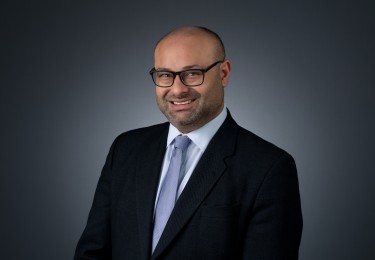Investing & Performance | 17 April 2025
Making data-driven decisions
Coutts’ investment experts covered why they see ongoing economic growth in the US despite current volatility at a recent client event. They also talked through their investment approach.

Our analysis of economic data still shows a resilient US economy able to absorb the fluctuations of current tariff-related volatility.
Speaking at our latest investment event for clients, our specialists acknowledged the wide-ranging impact of the uncertainty caused by President Trump’s tariffs. But data indicates a resilient US economy, looking relatively good on the consumer and corporate side with no obvious imbalances in terms of leverage or debt. While the US will suffer from tariffs and ongoing uncertainty, it should have the means to absorb the fluctuations.
Economic and consumer indicators
We look at weekly and monthly economic indicators such as jobs growth and retail sales to get a good measure of the US economy. We also analyse consumer and business surveys to assess the potential impact on economic growth but are also cognisant that these indicators don’t always translate through to economic growth with 2022 being a good example of this in the US.
“The data we monitor shows that the US employment market is strong and people are still spending their money,” said Lilian Chovin, Head of Asset Allocation.
The surveys we’re currently seeing, predictably say confidence has reduced, however, it’s difficult to say for sure what impact that will have over time. “In 2022, rising inflation in the US created a lot of negative sentiment among consumers and corporates, but that ultimately didn’t translate into weak consumer spending,” added Lilian.
Past performance should not be taken as a guide to future performance. The value of investments, and the income from them, can fall as well as rise and you may not get back what you put in. You should continue to hold cash for your short-term needs. This article should not be taken as advice.
US expected to slow, but still grow
Regarding what current conditions could mean for future economic growth, it’s hard to assess given how the situation continues to evolve. Negotiations are underway between different countries and the US, and many companies are looking for ways to circumvent the tariffs.
What we do know is that, as tariffs are effectively a tax on consumers, we would expect to see lower economic growth and higher inflation in the US this year. But we do still expect to see growth.
Forecasts from our colleagues at NatWest Markets (as at 17 April) show real GDP growth in the US falling to 1.2% from 2% this year, and to 1.8% from 2.1% in 2026.
a range of potential outcomes
Recession risks have risen, but economic fundamentals were strong prior to this. Economic outcomes moving forward will depend on the outcome of negotiations, retaliation from other countries, and the length of time the tariffs will remain in place.
Source: NatWest Markets, as at 17 April.
Central banks have scope to lower interest rates
We have highlighted that inflation in the US appears to be under control and interest rates were at higher levels historically.
This gives the US Federal Reserve (Fed) some flexibility to cut interest rates should it see the need to support economic growth. And if that were to happen, it could be positive for investors as it makes borrowing cheaper and boosts confidence, leading people to spend while lowering company borrowing costs – both potentially good for share prices.
“The Fed can afford to wait and see how tariffs will impact growth and inflation, and we believe it has a lot of room to react if necessary,” attested Lilian.
“The Fed can afford to wait and see how tariffs will impact growth and inflation, and we believe it has a lot of room to react if necessary”
Lilian Chovin, Head of Asset Allocation
our active investment themes
Here’s an overview of how our active investment themes work to diversify portfolios against any potential undue risk.
overweight alternatives
Given elevated correlations between bonds and equities, we have allocated to liquid alternatives to improve diversification in multi-asset portfolios.
sterling vs US dollar
Our long-term fair value model shows GBP is undervalued vs USD. A moderate overweight to GBP vs USD enhances portfolio diversification.
overweight equities
We remain overweight equities given our central expectation for steady economic growth and supportive monetary policy.
buying opportunities
Our investment decisions are made in line with our ‘anchor and cycle’ process.
Anchor is about the long-term horizon – three to five years, or even longer. It is valuations based. We work out the expected returns of various assets – bonds and equities – and we lean into where the outcomes appear most attractive because we want to take advantage of that potential.
The current set of market events has seen a cheapening in various assets and could provide buying opportunities that add long-term value to investment portfolios.
Cycle is about the next year to 18 months. It’s about whether we are in economic recovery, expansion, slowdown or contraction. Experience shows us that, if we are not in a period of economic contraction, we should lean into risk assets.
Risk to growth already priced in
Regarding current positioning, the investment team made a conscious decision not to make any immediate changes following ‘Liberation Day’ and the ensuing market volatility. The market had already priced in most of the risk to growth.
Monique Wong, Head of Multi Asset Portfolio Management, said: “That means you would have to believe there is going to be a significant negative outlook on top of the uncertainty already priced in, in order to make changes.”
Considerations for investing through volatile markets
We believe investors should remain resilient and not shrink their time horizon during periods of market volatility as they would potentially reduce their long term expected gains. This is because the good days and the bad days in the market tend to sit next to each other. Monique used the covid lockdown as a recent illustration.
“In February and March of 2020, we had the nine worst days of the decade in the market. But we also had the best eight days of the decade.
“Those who pull out of their investments when conditions become challenging could miss out on potential gains.”
Speak to us
If you are a Coutts client and would like to discuss market developments or your own investments with us in more detail, please contact your private banker.
More insights






